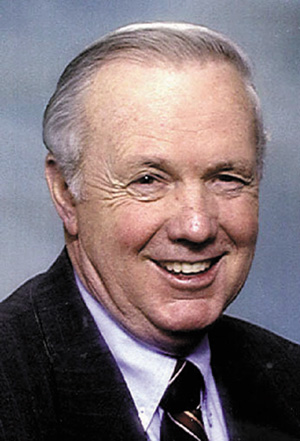No. 183 - THE DAY "THEY" WAS BURIED
No. 183
Jim Davidson...NEWSPAPER COLUMN
THE DAY "THEY" WAS BURIED
Over the past several months I have received literally hundreds of comments, phone calls and letters from our readers, but a 'first' came in the mail a few weeks ago. I got a talking letter on cassette from Major Robert Cook, (U.S. Marines, Ret.), who lives in Hot Springs National Park, Arkansas. He had just read my column "The Why Don't They Syndrome" in the Sunday Edition of the Hot Springs Sentinel Record.
This column reminded him of a real life experience that happened back in 1960 at Camp Lejeune, North Carolina. He began by swearing on a stack of Bibles that it was a true story and when I listened to it, it was hilarious and it also contained a worthwhile message that will benefit all of us .
At the time, then Captain Cook has just been assigned Company Commander of an H & S company of an H & S Battalion. When he reported for duty he learned that one of the platoons in his company was a utility platoon and he said these people were more or less engineers, as they maintained and operated dump trucks, road graders, cranes, bull-dozers and other heavy equipment. The platoon commander was a Warrant Officer by the name of George Herman and Captain Cook called him up and said that he would like to come out and see what he had.
They agreed to meet the next morning at 9:00 O'clock and as they sitting there drinking coffee, Robert looked out the window and saw a fresh grave. This grave was complete with fresh flowers and a hand carved wooden headmarker that said "THEY." Robert said he knew that back in 1941 when Camp Lejeune was built they had uprooted several family cemeteries and had moved them to a central location down near Jacksonville, North Carolina. When he first saw this grave he thought they had missed one. At this point he asked George Herman, "What's this all about?" George said, "Come outside and I will show you." When they arrived at the grave site, he went on to say, "Captain, when I first got here, every____ time something went wrong and I would ask some PFC., Corporal or Sergeant what happened, they would respond by saying, "Well, "They" told me to do it this way or "They" did this or "They" did that. Well, I finally got tired of it and decided "THEY" was going to be buried.
So, I got the carpenter shop to build a coffin. We also secured a mannequin (he obviously didn't want to tell me where he got it), and one of the Marines carved the wooden headmarker. I also got a local florist to provide the flowers, and we "big timed" the Second Division Marine Band to provide a bugler. Then I had a detail of men to dig a regulation grave, 6 ft. long, 2 ft. wide and 6 ft. deep.
As he continued to speak he pointed to a nearby shed and said, "We assembled at that shed over there and I had the Base Chaplain say a few appropriate words and when the service was over, the six Marines who served as pall bearers carried the coffin and laid it in the grave. As another detail of men covered the grave, the bugler played Taps and it was a very touching and moving service. He said, "I guess the hardest part was keeping a straight face."
After it was over, George Herman told all of his men, "I don't ever want any of you to say "They" did this or "They" did that because "They" is dead and is buried right here in this grave." I would just like to say a word of thanks to Major Robert Cook for putting it "ON THERE" and sharing this true story. It does contain a valuable lesson for each of us. We can all be a little more definitive and the next time you are tempted to say "They" just remember "They" is dead and is buried over in Camp Lejune, North Carolina. (Jim Davidson is a motivational speaker and syndicated columnist. You may contact him at 2 Bentley Drive, Conway, AR 72034.)
